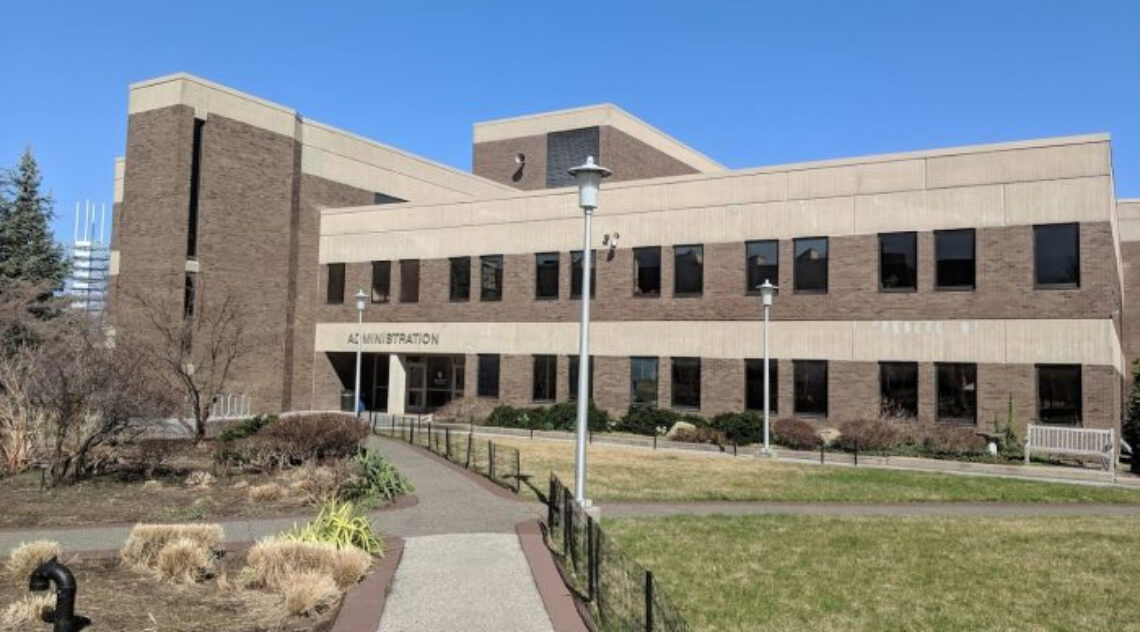
For Stony Brook University, 2024 will be the year of more, as in more college counselors, more classes, more study abroad opportunities, more artificial intelligence and more faculty.
The downstate flagship university, which is a member of the Association of American Universities and has been climbing the rankings of colleges from US News and World Reports, plans to address several growing needs.
“We have invested heavily in new advisors,” said Carl Lejuez, executive vice president and provost at Stony Brook, in a wide ranging interview. These advisors will be coming on board throughout the semester.
With additional support from the state and a clear focus on providing constructive guidance, the university is working to reduce the number of students each advisor has, enabling counselors to “focus on the students they are serving,” Lejuez said.
Advisors will help students work towards graduation and will hand off those students to an engaged career center.
At the same time, Stony Brook is expanding its global footprint. Lejuez said study abroad options were already “strong” in Europe, while the university is developing additional opportunities in Asia and Africa.
The university prioritizes making study abroad as affordable as possible, offering several scholarships from the office of global affairs and through individual departments.
Students aren’t always aware that “they can study abroad in any SBU-sponsored program for a semester and keep all of their existing federal aid and scholarships and in many cases the full cost of that semester abroad is comparable and sometimes even less expensive” than what the student would spend on Long Island, Lejuez explained in an email.
As for artificial intelligence, Stony Brook plans to expand on existing work in the realm of teaching, mentoring, research and community outreach.
In efforts sponsored by the Center for Excellence in Learning and the Library, the university is holding multiple training sessions for faculty to discuss how they approach AI in their classrooms.
The library opened an AI Lab that will enable students to experiment, innovate and work on AI projects, Lejuez said. The library plans to hire several new librarians with expertise in AI, machine learning and innovation.
The library is training students on the ethical use of AI and will focus on non-STEM disciplines to help students in the arts, humanities and social sciences.
Artificial intelligence “has its strengths and weaknesses,” said Lejuez. “We are not shying away from it.”
As for the community, the hope is that Stony Brook will use the semester to develop plans for kindergarten through 12th grade and then launch the expansion later this spring.
Additional classes
Lejuez acknowledged that class capacity created challenges in the past.
Stony Brook is using predictive analysis to make decisions about where to add classes and sections. At this point, the university has invested in the most in-demand classes in fields such as computer science, biology, chemistry, psychology and business.
The school has also added capacity in writing, math and languages.
Stony Brook is focused on experiential opportunities across four domains: study abroad, internships, research and entrepreneurship.
The school is developing plans for additional makerspaces, which are places where people with shared interests can come together to use equipment and exchange ideas and information.
New hires
Stony Brook is in the middle of a hiring cycle and is likely to “bring the largest group of new faculty we’ve had in many years” on board, the provost said. “This is going to have a big impact on the student experience” including research, climate science, artificial intelligence and healthy aging.
The additional hires will create more research experiences for undergraduates, Lejuez said.
Stony Brook recently created a Center for Healthy Aging, CHA, which combines researchers and clinicians who are focused on enhancing the health and wellness of people as they age.
Amid a host of new opportunities, a rise in the US News and World Report rankings and a victory in the city’s Governors Island contest to create a climate solutions center, Stony Brook has seen an increase in applications from the state, the country and other countries.
This year, about 10,000 students applied to Stony Brook’s first early action admissions process, which Lejuez described as a “great success.”
Amid a world in which regional conflicts have had echoes of tension and disagreement in academic institutions around the country and with an election cycle many expect will be especially contentious, Stony Brook’s Humanities Institute has put together several programs.
This includes a talk on “Muslim and Jewish Relations in the Middle Ages” on February 15th, another on “The Electoral Imagination: Literature, Legitimacy, and Other Rigged Systems” on April 17th and, among others, a talk on April 18th titled “The Problem of Time for Democracies.
True to the core values
Amid all the growth, Stony Brook, led by President Maurie McInnis, plans to continue to focus on its core values.
Lejuez said some people have asked, “are we still going to be the university that really provides social mobility opportunities in ways that are just not available in other places? We will always be that. Everything else happens in the context” of that goal.